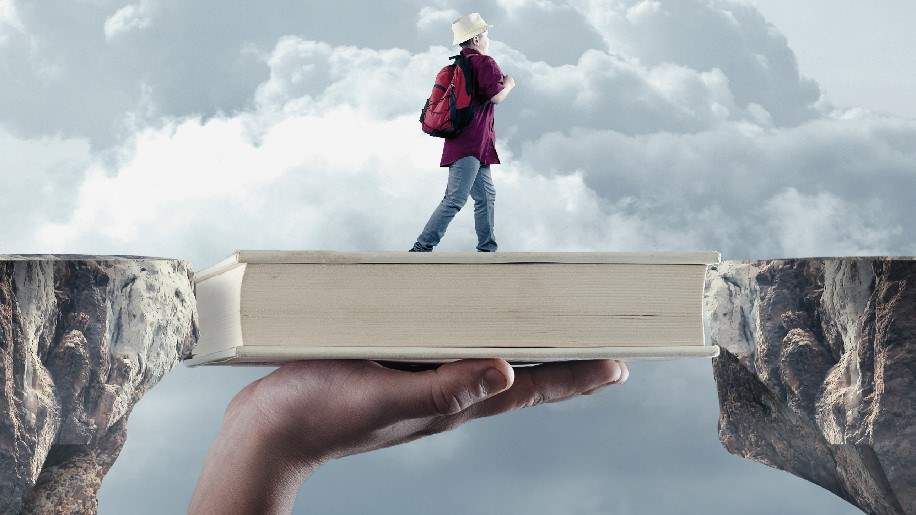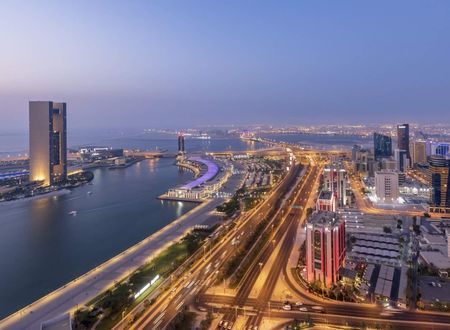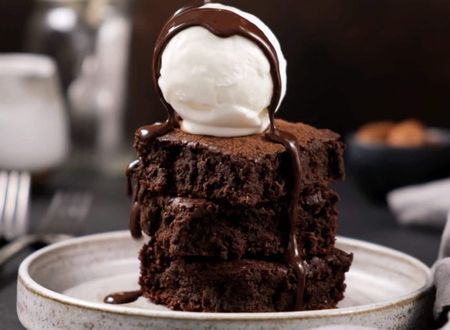Sometimes, life gives you everything on a silver platter and then it takes away the platter. It feels worse than never having received the silver platter.
Trust me, I know.
I had close to a perfect childhood. My father was a well- known journalist of his time, and we led a very comfortable life. My brother and I went to the best schools in Lucknow and New Delhi, we lived in very nice houses provided by my father’s employer, a British-owned newspaper. We had perfect holidays every summer in the hill stations of North India, we were living the dream.
All this came to an end when my father passed away, when I was just fifteen. It was very tough blow, but I accepted it as fate, without a tear drop in my eye.
After all, boys are not supposed to cry.
Our life changed completely, and we moved to Lucknow to stay with my uncle. My elder brother went to IIT Kharagpur, and I put all my mind to preparing for my own IIT Entrance Examination. I had my whole life ahead of me and everyone advised me to become an engineer, like my brother, since I was good at studies.
Again, life handed me everything on a silver platter. I prepared very hard for the competition and when the results came out, I was second in all India rank. I could choose any IIT that I wanted, I could choose any field of engineering, my career was set. I opted for IIT Kanpur because of its reputation at that time and because it was close to Lucknow. To this day, I can’t figure out why I didn’t go to IIT Kharagpur.
I did very well in the first semester, but than the silver platter was taken away. My brother passed away, in Kharagpur, all by himself in a new city. I was in total shock, completely devastated by what life had done to our family. I even fell sick, suffering from typhoid for close to three months. I don’t think I cried very much; the pain was far too deep inside.
After all, boys are not supposed to cry.
The blow was even harder for my mother, who lost a husband and a son within the space of a year or so. We had to look after each other, there was no one else. However, I did get a support from our extended family members; they became my brothers and sisters.
I later discovered that the two deaths in our family had a close connection. You see, my father was a very successful journalist and a great human being, but he had a fatal flaw. He smoked. He didn’t just smoke, he smoked a lot, about 50 cigarettes a day. He said that smoking was the key to his creativity, he could write only when he was smoking and being a journalist, he wrote a lot.
He got lung cancer at the age of 50; with his smoking habit, it was only a matter of time. He went to England for treatment but that didn’t quite work. He was also given chemotherapy using a new and experimental drug. Finally, he had to take radiation treatment in India.
In those days only one place around New Delhi with that capability: a military hospital. My father was put in an isolation ward of that hospital, as the procedure itself was considered very dangerous at that time.
My brother was the only family member who visited him in that ward. He brought home-cooked food every day for his father, like a dutiful son. I wanted to go to so many times, but my brother stopped me from ever going anywhere near that place.
A year later, he succumbed to leukemia when he was in IIT Kharagpur. Most likely, it was due to radiation exposure. Now that I look back on those days, I realize my brother literally saved my life by not letting me go to the isolation ward – after all, that is what big brothers do, they take the risk on their own shoulders.
Somehow, I completed my five years of engineering. I even stayed on another two years to do a master’s degree. After this I worked in Mumbai and New Delhi and found a beautiful wife who has given me two wonderful kids. She is my soul mate; we share the same spiritual interests.
I have fought most of lives battles without a shedding a tear, keeping all the pain inside, like most men do. As the Sufi song goes:
“Har dard hamne upna, apne se bhi chuppaya.
Rooh ho gaya kaleja, shikwa na labh pe aaya.”
Translation
“I have hidden all my pain, even from myself.
My heart was filled with sorrow, but not a word came to my lips.”
My wife is very much like me. Two years into our marriage, her father died while he was posted in Libya while working for the United Nations. His body was brought back to India and kept in the courtyard of a relative’s for a few days. My wife saw the body and fell into total silence. She was in a state of shock for more than a day, not saying a word. Then the tears started flowing and they kept on flowing for a long time.
I had a strange experience during an Art of Living course in Bengaluru a few years ago. Our group did Sudarshan Kriya, and then we all went into Savasana. The breathing patterns in the Sudarshan Kriya stirred up old emotions, and in savasana, I just could not stop crying. The person next to me, a complete stranger, said:
“Poor fellow.”
The tears did stop eventually. Then they turned into laughter, and I couldn’t stop laughing for a long, long time.
After all, big boys don’t cry.









Comments & Discussion
53 COMMENTS
Please login to read members' comments and participate in the discussion.